Search Images
Browse Content (p. 1689)
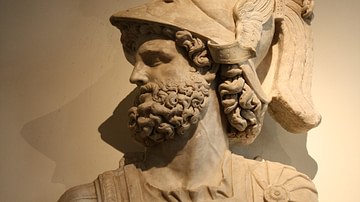
Image
Mars Ultor
This 2nd century CE head of Mars Ultor (the Avenger) was once part of a relief sculpture and is inspired by a similar representation originally part of the Temple of Mars Ultor in the Forum of Augustus, Rome. The piece was extensively restored...
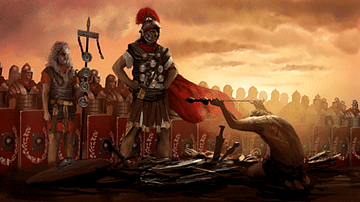
Image
Roman Victory
An image illustrating the submission of arms to a victorious Roman army.
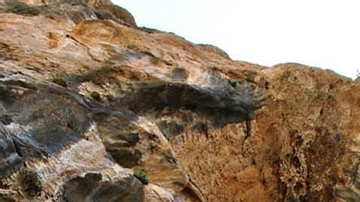
Image
Naram-Sin rock relief, Sulaimaniya, Iraq
A rock relief depicting the victory of the Akkadian king Naram Sin after defeating Lulubis, tribes who came from the Zagros mountains west of Iran. The relief was made on the surface of a mountain cliff, modern Qopi Qoshk, Qaradagh's mountains...
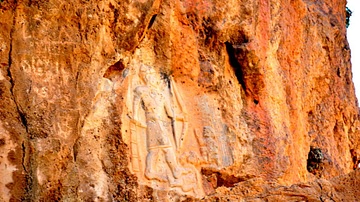
Image
Mt. Darbandi Bilula's Akkadian Rock Relief, Mesopotamia, Iraq
This rock relief dates back to the Akkadian era. It lies on the cliff of Mt. Darbadi Bilula, Hori and Shekhan area, Sulaimaniya, near the Iranian border, Iraq. Circa 2100 BCE. It features a victorious man with two captives before him; one...
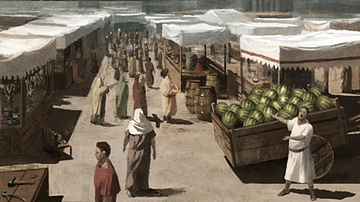
Image
Market Scene
This is an artist's impression of how an ancient Greek or Roman agora or forum (market) may have looked like.
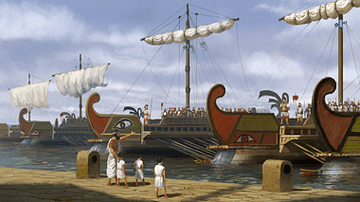
Image
Greek Harbour Scene
Artist's impression of how a harbour scene in ancient Greece may have looked.
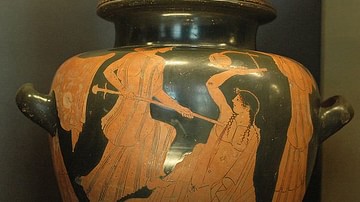
Image
Death of Orpheus
An Attic red-figure stamnos depicting the death of Orpheus, c. 470 BCE. (Louvre, Paris)
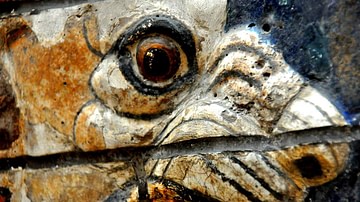
Image
Lion's Head from the Processional Street, Babylonia
A close-up view of a lion's head work relief which decorates the processional street (from Marduk temple to the Ishtar Gate and Akitu Temple). It was made of glazed terracotta bricks. Reign of Nebuchadnezzar II, 604-562 BCE, Babylon, Mesopotamia...
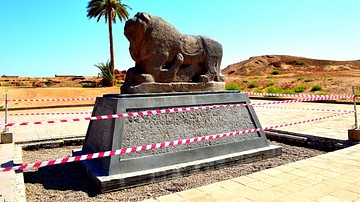
Image
Lion of Babylon Statue, Babylonia
In June/July 2013 CE, an archaeological team started a mission to reconstruct the lion of Babylon statue and its surrounding. The platform of the statue has been reconstructed with cement. The lion itself was untouched.
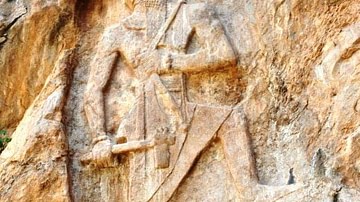
Image
Naram-Sin Rock Relief, Sulaimaniya, Iraq
A rock relief depicting the victory of the Akkadian king Naram Sin after defeating Lulubis, tribes who came from the Zagros mountains west of Iran. The relief was made on the surface of a mountain cliff, modern Qopi Qoshk, Qaradagh's mountains...